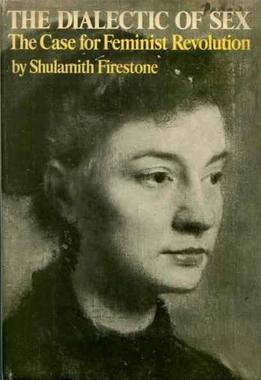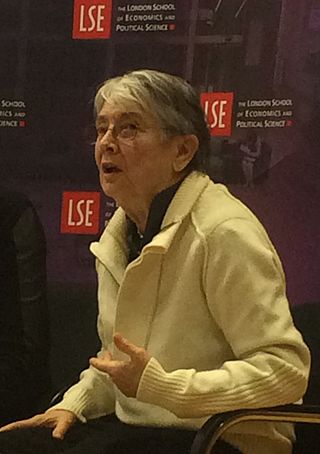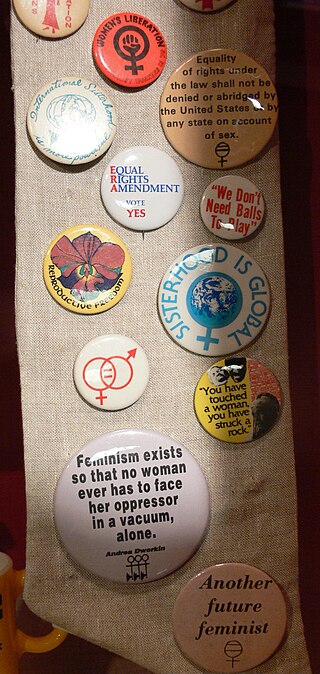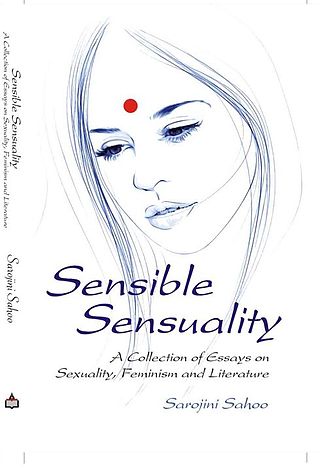Radical feminism is a perspective within feminism that calls for a radical re-ordering of society in which male supremacy is eliminated in all social and economic contexts, while recognizing that women's experiences are also affected by other social divisions such as in race, class, and sexual orientation. The ideology and movement emerged in the 1960s.

Simone Lucie Ernestine Marie Bertrand de Beauvoir was a French existentialist philosopher, writer, social theorist, and feminist activist. Though she did not consider herself a philosopher, nor was she considered one at the time of her death, she had a significant influence on both feminist existentialism and feminist theory.
Equality feminism is a subset of the overall feminism movement and more specifically of the liberal feminist tradition that focuses on the basic similarities between men and women, and whose ultimate goal is the equality of both genders in all domains. This includes economic and political equality, equal access within the workplace, freedom from oppressive gender stereotyping, and an androgynous worldview.

Katherine Murray Millett was an American feminist writer, educator, artist, and activist. She attended the University of Oxford and was the first American woman to be awarded a degree with first-class honors after studying at St Hilda's College, Oxford. She has been described as "a seminal influence on second-wave feminism", and is best known for her book Sexual Politics (1970), which was based on her doctoral dissertation at Columbia University. Journalist Liza Featherstone attributes the attainment of previously unimaginable "legal abortion, greater professional equality between the sexes, and a sexual freedom" in part to Millett's efforts.

The Second Sex is a 1949 book by the French existentialist philosopher Simone de Beauvoir, in which the author discusses the treatment of women in the present society as well as throughout all of history. Beauvoir researched and wrote the book in about 14 months between 1946 and 1949. She published the work in two volumes: Facts and Myths, and Lived Experience. Some chapters first appeared in the journal Les Temps modernes.
Feminist theory is the extension of feminism into theoretical, fictional, or philosophical discourse. It aims to understand the nature of gender inequality. It examines women's and men's social roles, experiences, interests, chores, and feminist politics in a variety of fields, such as anthropology and sociology, communication, media studies, psychoanalysis, political theory, home economics, literature, education, and philosophy.

Shulamith Bath Shmuel Ben Ari Firestone was a Canadian-American radical feminist writer and activist. Firestone was a central figure in the early development of radical feminism and second-wave feminism and a founding member of three radical-feminist groups: New York Radical Women, Redstockings, and New York Radical Feminists. Within these radical movements, Firestone became known as "the firebrand" and "the fireball" for the fervor and passion she expressed towards the cause. Firestone participated in activism such as speaking out at The National Conference for New Politics in Chicago. Also while a member of various feminist groups she participated in actions including picketing a Miss America Contest, organizing a mock funeral for womanhood known as "The Burial of Traditional Womanhood", protesting sexual harassment at Madison Square Garden, organizing abortion speak outs, and disrupting abortion legislation meetings.
Feminism is a collection of movements aimed at defining, establishing, and defending equal political, economic, and social rights for women. Existentialism is a philosophical and cultural movement which holds that the starting point of philosophical thinking must be the individual and the experiences of the individual, that moral thinking and scientific thinking together are not sufficient for understanding all of human existence, and, therefore, that a further set of categories, governed by the norm of authenticity, is necessary to understand human existence. This philosophy analyzes relationships between the individual and things, or other human beings, and how they limit or condition choice.
Nancy Julia Chodorow is an American sociologist and professor. She began her career as a professor of Women's studies at Wellesley College in 1973, and from 1974 on taught at the University of California, Santa Cruz, until 1986. She then was a professor in the departments of sociology and clinical psychology at the University of California, Berkeley until she resigned in 1986, after which she taught psychiatry at Harvard Medical School/Cambridge Health Alliance. Chodorow is often described as a leader in feminist thought, especially in the realms of psychoanalysis and psychology.
Juliet Mitchell, Lady Goody is a British psychoanalyst, socialist feminist, research professor and author.

The Dialectic of Sex: The Case for Feminist Revolution is a 1970 book by the radical feminist activist Shulamith Firestone. Written over a few months when Firestone was 25, it has been described as a classic of feminist thought.
Feminist sexology is an offshoot of traditional studies of sexology that focuses on the intersectionality of sex and gender in relation to the sexual lives of women. Sexology has a basis in psychoanalysis, specifically Freudian theory, which played a big role in early sexology. This reactionary field of feminist sexology seeks to be inclusive of experiences of sexuality and break down the problematic ideas that have been expressed by sexology in the past. Feminist sexology shares many principles with the overarching field of sexology; in particular, it does not try to prescribe a certain path or "normality" for women's sexuality, but only observe and note the different and varied ways in which women express their sexuality. It is a young field, but one that is growing rapidly.
Penis envy is a stage in Sigmund Freud's theory of female psychosexual development, in which young girls experience anxiety upon realization that they do not have a penis. Freud considered this realization a defining moment in a series of transitions toward a mature female sexuality. In Freudian theory, the penis envy stage begins the transition from attachment to the mother to competition with the mother for the attention and affection of the father. The young boy's realization that women do not have a penis is thought to result in castration anxiety.

Christine Delphy is a French feminist sociologist, writer and theorist. Known for pioneering materialist feminism, she co-founded the French women's liberation movement in 1970 and the journal Nouvelles questions féministes with Simone de Beauvoir in 1981.
Patriarchy is a social system in which positions of dominance and privilege are held by men. The term patriarchy is used both in anthropology to describe a family or clan controlled by the father or eldest male or group of males, and in feminist theory to describe a broader social structure in which men as a group dominate women and children.
Gender essentialism is a theory which attributes distinct, intrinsic qualities to women and men. Based in essentialism, it holds that there are certain universal, innate, biologically based features of gender that are at the root of many of the group differences observed in the behavior of men and women. In Western civilization, it is suggested in writings going back to ancient Greece. With the advent of Christianity, the earlier Greek model was expressed in theological discussions as the doctrine that there are two distinct sexes, male and female, created by God, and that individuals are immutably one or the other. This view remained largely unchanged until the middle of the 19th century. This changed the locus of the origin of the essential differences from religion to biology, in Sandra Bem's words, "from God's grand creation [to] its scientific equivalent: evolution's grand creation," but the belief in an immutable origin had not changed.

A variety of movements of feminist ideology have developed over the years. They vary in goals, strategies, and affiliations. They often overlap, and some feminists identify themselves with several branches of feminist thought.

Sensible and Sensuality is a collection of essay by Indian feminist writer Sarojini Sahoo. Published in 2010, the book contains the author's view on feminism. Sahoo is a key figure and trend-setter of feminism in contemporary Indian literature. She has been listed among 25 exceptional women of India by Kindle English magazine of Kolkata. For Sahoo, feminism is not a "gender problem" or confrontational attack on male hegemony and, as such, differs from the feminist views of Virginia Woolf or Judith Butler.
The principle of male as norm holds that language referring to females, such as the suffix -ess, the use of man to mean "human", and other such devices, strengthens the perceptions that the male category is the norm and that the corresponding female category is a derivation and thus less important. The idea was first clearly expressed by 19th-century thinkers who began deconstructing the English language to expose the products and footings of patriarchy.
In feminist theory, heteropatriarchy or cisheteropatriarchy, is a socio-political system where (primarily) cisgender and heterosexual males have authority over other cisgender males, females, and people with other sexual orientations and gender identities. It is a term that emphasizes that discrimination against women and LGBT people is derived from the same sexist social principle.








